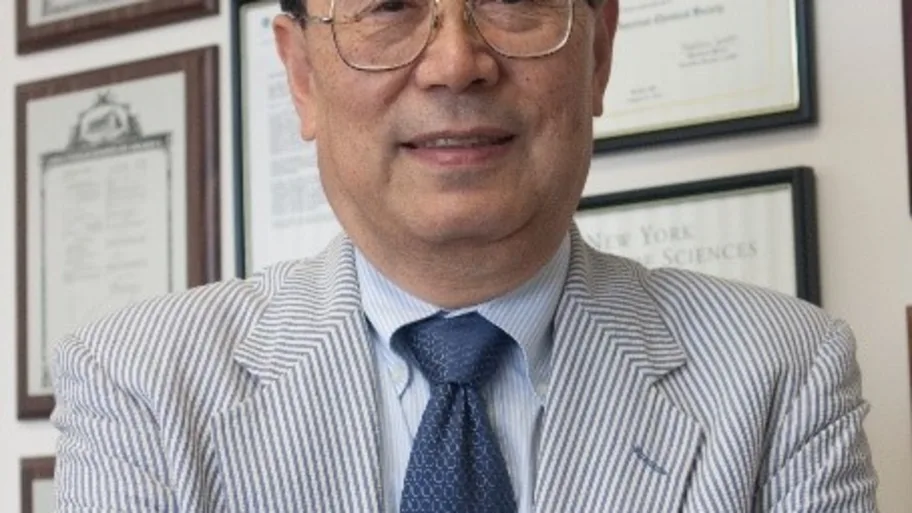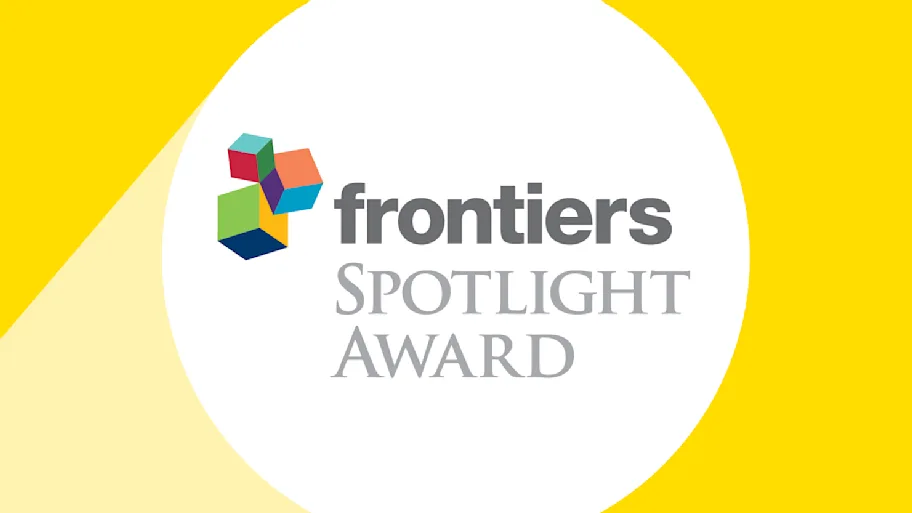
- Science news
- Top news
- Frontiers in Chemistry 2020 Awards
Frontiers in Chemistry 2020 Awards
We are pleased to announce the first edition of our Frontiers in Chemistry 2020 Awards. These awards recognize the most outstanding board members of our journal, and are divided into four categories:
Leadership Award – rewarding the guidance of a chief editor in the development of their journal section and spearheading it to new heights
Inspiration Award – rewarding the accomplishment of a chief editor in making their specialty section the most attractive in the journal
Diversity Award – rewarding the diversity of a journal section’s editorial board and community outreach through the chief editor’s strong community-focused vision
Outstanding Associate Editor Award – rewarding the most active and prolific associate editors, supporting our open access philosophy
Frontiers in Chemistry 2020 Leadership Award – presented to Prof. Nosang Myung

For his leadership, vision, and constant support for the journal, allowing the Electrochemistry section to become the fastest-growing specialty section, while ensuring only the highest-quality research is published.
Where does your love for chemistry come from? When I was a kid, I loved to make and analyze stuff. Being a chemical engineer and materials electrochemist, I thought I would be able to discover or invent novel materials and translate the discovery into the real world.
What career would you have chosen if you hadn’t become a chemist? If I wasn't a chemical engineer, I would have been a business or economics major.
What was the latest experiment you did in the lab? After becoming a faculty member at a research university, I had a limited opportunity to conduct my own experiments. However, I am fortunate to work with many young graduate students and postdoctoral researchers to oversee their latest experimental results in nanoengineered materials synthesis and their application of forward sensors and environmental remediation.
Which chemist from the past would you have liked to meet – and why? Since my research interests are in electrochemistry and electrical and magnetic materials, I would love to meet Dr. Michael Faraday, an English scientist who contributed to the study of electromagnetism and electrochemistry. His pioneering discoveries in electromagnetic induction, diamagnetism and electrolysis created my field.
If you had to select one element in the periodic table, what would it be and why? Tellurium. Tellurium has two allotropes, crystalline and amorphous. Due to its unique anisotropic crystallinity, it has many unique properties such as thermoelectricity, piezoelectricity, etc. Additionally, its compounds have been in many device applications, including solar cells, acousto-optic modulators, and phase change memory chips.
Frontiers in Chemistry 2020 Inspiration Award – presented to Prof. Fan Zhang

For his guidance to make the Nanoscience section the most prolific, attractive, and ebullient section in the journal, while ensuring the publication of high-profile content.
Where does your love for chemistry come from?The creativity of chemistry, along with the marvelous phenomenon of chemical reactions, attracted me in middle school and still drives me to dive into chemical research. Besides this, I have long been interested in the interdisciplinary collaboration between chemistry and other sciences, especially life science and medicine. It is because of this interest that our group always focuses on employing chemical methods to interpret the unknown in life science, as well as devising chemical tools to address the unsolved problems in healthcare fields.
What career would you have chosen if you hadn’t become a chemist?I would have be an optical engineer most likely, as I have a strong interest in 'playing with light'. Based on this interest, my work also requires a great understanding of optics.
What was the latest experiment you did in the lab?Currently our group mainly uses small-molecule probes, with near-infrared fluorescence and the imaging equipment built by ourselves, to study important biomedical problems. We also collaborate with some surgeons to solve real problems in clinical settings.
Which chemist from the past would you have liked to meet – and why?Madame Curie, I think. Madame Curie is held in high esteem throughout the world for her discovery of radioactive elements. Her persistence to comprehensively investigate all the known chemical elements and compounds at that time impresses me deeply and I will always respect her contributions to both the development of scientific theories and the corresponding applications.
If you had to select one element in the periodic table, what would it be and why?I would choose lanthanides for their importance in inorganic chemistry and my interest in developing lanthanide nanoprobes for bioimaging.
Frontiers in Chemistry 2020 Diversity Award – presented to Prof. Tony James

For his community engagement allowing the Supramolecular Chemistry section to become the most diverse specialty section in the journal, spearheading community-focused projects such as the exceptional International Women of Supramolecular Chemistry Research Topic and the recent Suprastars of Chemistry collection.
Where does your love for chemistry come from?My PhD mentor Tom Fyles (1986-91) is one of the reasons I enjoy Chemistry so much. He was a truly inspirational supervisor as well as being an exceptional brewer of beers. It was under his relaxed supervisory style that I realized I wanted to become an academic. Catalyzed by inspirational Lectures by Donald J Cram (Pacifichem 1987), who used 3D models of carcerands to convey the importance of his science, and Sir J Fraser Stoddart (1990 Halifax, Canada), who is renowned for using language and colors to convey difficult concepts and is now fondly known as the Twitter monster @sirfrasersays. Once I decided to be an academic, Seiji Shinkai helped me as a Post-Doctoral Research Fellow (1991-95) hone my skills as a chemist and reminded me not to get too carried away since “even monkeys fall from trees”!
What career would you have chosen, if you hadn’t become a chemist?An artist – art is one of my greatest passions. I am particularly inspired by sculptures and 3D art. You could say my love of sculpture is why I became a chemist – since using chemistry we can create molecular sculptures.
What was the latest experiment you did in the lab?I often pop into the lab to see how things are going and sometimes give a helping hand. When in the lab with PhD student Adam Sedgwick (2014-17) we “moon-rocked” a new sensing platform for reactive oxygen and “pinkment” was born.
Which chemist from the past would you have liked to meet – and why?Marie Skłodowska Curie – put simply one of the most outstanding minds ever to have existed.
If you had to select one element in the periodic table, what would it be and why?That one is easy – Boron. Boron is an integral and essential part of my research from glucose sensors to reactive oxygen sensors and imaging agents. Boron has even resulted in a process being named after myself and Steven Bull – the Bull-James Assembly.
Frontiers in Chemistry 2020 Outstanding Associate Editors Award
This award is given to outstanding associate editors who have shown strong dedication to Frontiers’ open access publishing model, supporting our peer review and contributing in a big way to the journal, supporting its growth and high quality.
We are delighted to award the Outstanding Associate Editor Award to the following associate editors:
Department of Chemistry and Chemical Technologies, University of Calabria | ||
University of Salento | ||
Fudan University | ||
Texas Tech University | ||
University of Technology Malaysia | ||
University of Adelaide | ||
Huazhong University of Science and Technology | ||
Indian Institute of Science Education and Research Kolkata | ||
Tianjin University | ||
The University of Newcastle | ||
Institute of Industrial Science, University of Tokyo | ||
AgroParisTech Institut des Sciences et Industries du Vivant et de L'environnement |






